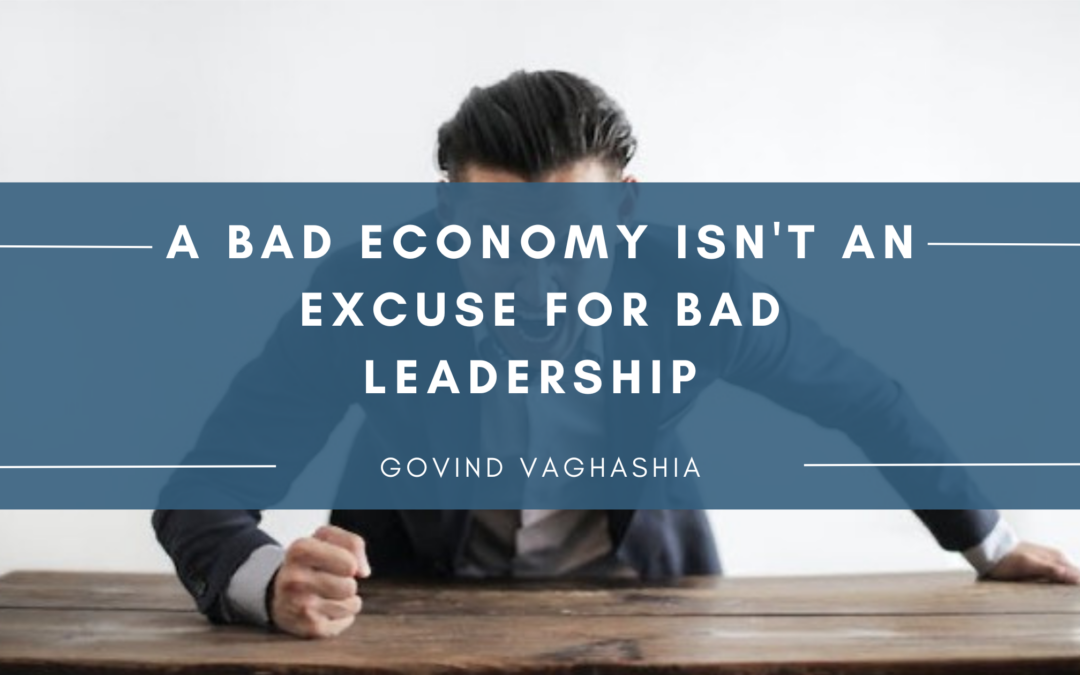Leadership, that elusive amalgamation of vision, resilience, and decision-making, often faces its most stringent tests amidst economic turmoil. The ebb and flow of economic tides, marked by recessions, downturns, and financial upheavals, have long been seen as the litmus test for the effectiveness of those in charge. Yet, the question lingers: does a bad economy serve as absolution for poor leadership?
Some contend that harsh economic landscapes are breeding grounds for excuses, allowing leaders to cloak inefficiencies or failures under the veil of external economic pressures. Others argue that true leadership, the kind that withstands the tempests of uncertainty and adversity, emerges most vividly when economic seas turn tumultuous.
The crux of this discourse lies not merely in the impact of economic woes on leadership but in how leaders respond and navigate these challenges. A bad economy, far from being an exonerating factor for ineffective management, should test the mettle and unveil the true capabilities of those in leadership positions.
Leadership Resilience Beyond Economic Fluctuations
True leadership transcends economic fluctuations. While a thriving economy might mask deficiencies, a downturn reveals the vulnerabilities that might have been overlooked. It’s during these trying times that the distinction between good and bad leadership becomes starkly evident.
Short-Term Fixes vs. Long-Term Viability
Bad leadership often resorts to short-term fixes, sacrificing long-term sustainability for immediate gains. In a struggling economy, this tendency might exacerbate existing issues, leading to a downward spiral. Effective leadership, however, focuses on long-term viability, seeking solutions that lay a solid foundation for recovery and growth.
Transparent Communication
Communication is pivotal in leadership, especially in challenging economic times. Bad leaders might resort to opacity or sugar-coating reality to maintain an illusion of stability. Conversely, effective leaders communicate transparently, acknowledging challenges while inspiring confidence and providing a clear vision for the path forward.
Addressing Systemic Weaknesses and Accountability
A bad economy often amplifies pre-existing structural flaws within organizations or systems. Leaders mustn’t use the economic downturn as a shield to deflect accountability for these issues. Instead, it’s an opportune moment for introspection and constructive change.
Motivating Teams and Cultivating Collaboration
Adversity tests a leader’s ability to rally and motivate a team. Bad leadership might foster a toxic environment of mistrust and demotivation. Conversely, effective leaders inspire confidence, offer support, and foster a culture of collaboration and innovation, turning adversity into an opportunity for personal and organizational growth.
Agile Decision-Making
Leaders who are rigid in their approaches might struggle to adapt to changing circumstances, exacerbating the impact of economic challenges. Conversely, adaptable leaders pivot strategies, leverage available resources creatively, and explore unconventional avenues to navigate through turbulence.
True leadership shines brightest when faced with adversity, steering organizations and communities through turbulent times by prioritizing transparency, innovation, long-term vision, and an unwavering commitment to progress.

